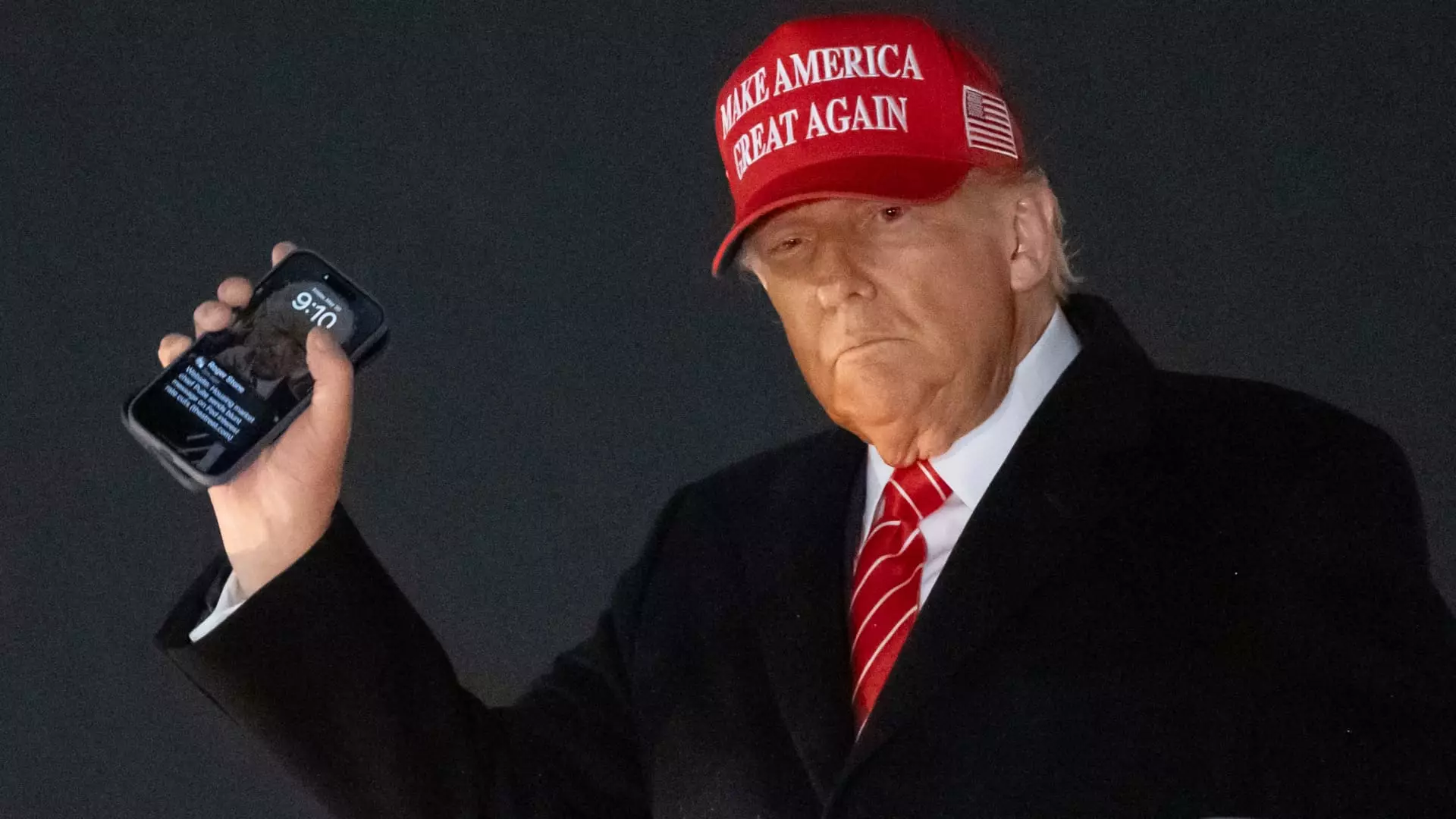The announcement of Trump Mobile and its $499 smartphone, the T1, underlines a troubling trend in the convergence of politics and business, particularly when ligating fast-moving consumer goods with political branding. Undeniably, the Trump Organization has found yet another avenue to monetize its association with its controversial figurehead, President Donald Trump. The new mobile service is not just a plan or a product; it’s a calculated effort designed to bleed loyalty from Trump’s supporters while entrenching his controversial legacy within yet another consumer niche.
Why is it concerning? Of course, businesses tie their products to relevant cultural icons, but there’s something strikingly cynical—and perhaps ethically dubious—about a presidential figure leveraging their office to hawk commercial products. The catchy name “The 47 Plan,” alongside the monthly pricing structure of $47.45 designed as a nod to Trump’s polarizing presidency, underscores a brand strategy that mixes political allegiance with consumerism. The inherent risk here is a blurring of lines between public service and self-service, raising profound questions about the conduct of public figures and their financial behavior when intertwined with their political careers.
Aesthetic Over Authenticity
The T1 smartphone boasts a gold-colored case marked with the American flag, signaling a luxurious vibe laced with an unmistakably nationalistic flair. But it raises another troubling gauge of authenticity: how much of this premium price tag is being paid for mere aesthetics? While consumers in the tech space have increasingly prioritized performance and reliability, this offering seems more about image than substance—drawing attention more for its superficial links to Americana than for any groundbreaking technology or user experience.
The phone’s specs—12 gigabytes of RAM, a 6.8-inch AMOLED screen, and a respectable 50-megapixel camera—are commendable at face value, but there remains skepticism about the product’s real-world performance and user satisfaction. With extensive offerings from established carriers providing similar or superior features at significantly cheaper rates, one must question whether consumers are genuinely purchasing a smartphone or merely investing another $499 into the Trump brand’s increasingly expansive portfolio.
The Ethics of Licensing
There are ethical dilemmas exacerbated by the cavalier licensing that seems to undergird the foundations of Trump Mobile. At the bottom of its website, a disclosure states that the Trump Organization is not directly involved in the hands-on creation or production of its own products, instead primarily engaging in licensing agreements with third-party manufacturers. This approach raises eyebrows—are consumers buying into a reputable telecommunications service, or are they unwittingly endorsing an ethically murky scheme that benefits the Trump family, regardless of the tangible value being offered?
Critics have pointed out the troubling implications of intertwining commerce with political loyalty, which essentially commodifies the notion of patriotism. The ethical lines continue to be vaporized as Trump and his enterprise, through licensing deals, devise intricate ways to profit from his political capital. There’s an undeniable ease with which the brand capitalizes on its marketable connection to a sitting president, raising pressing questions: When does profitable enterprise morph into exploitation of political allegiance?
Consumer Choices in a Political Landscape
As consumers grapple with their financial commitments amidst a cacophony of cell phone options, Trump’s proposition exists not just as a call plan but as a stark reminder of how political figures can manipulate consumer behavior. Pairing captivating marketing strategies with established demographic loyalty, Trump has yet again entwined civic duty to the forces of capitalism.
The troubling aspect of this development is not just the inflated prices of an exigent market; it’s the implications it carries for what consumerism can mean in a politically polarized climate. As an emergent consumer base increasingly looks at the overlap between brand ethics and societal values, buying a phone from Trump Mobile may well be viewed as a tacit endorsement of Trump’s broader political ethos.
No doubt, amidst a growing marketplace of socially-conscious consumers, the success of Trump Mobile will reverberate as a barometer for how far the political enterprise can stretch into commercial realms. It is imperative for us to approach these consumer choices with a critical eye. In a world where political affiliations increasingly translate into market strategies, the product you choose might say more about you than you ever intended.


Leave a Reply